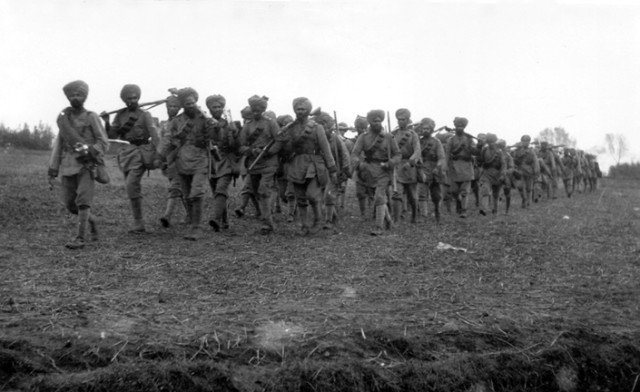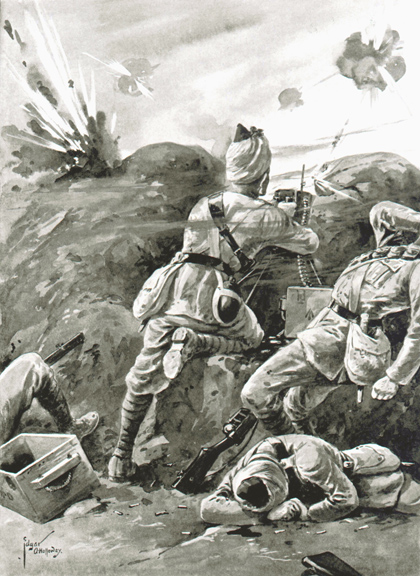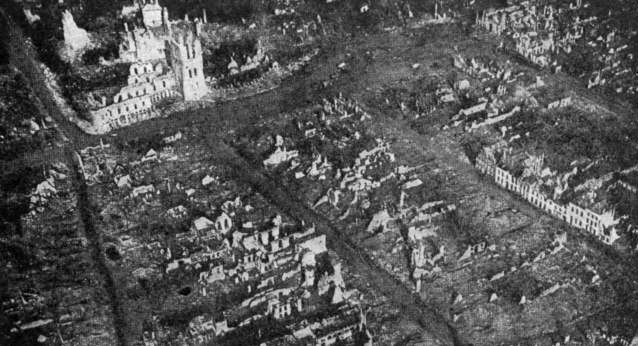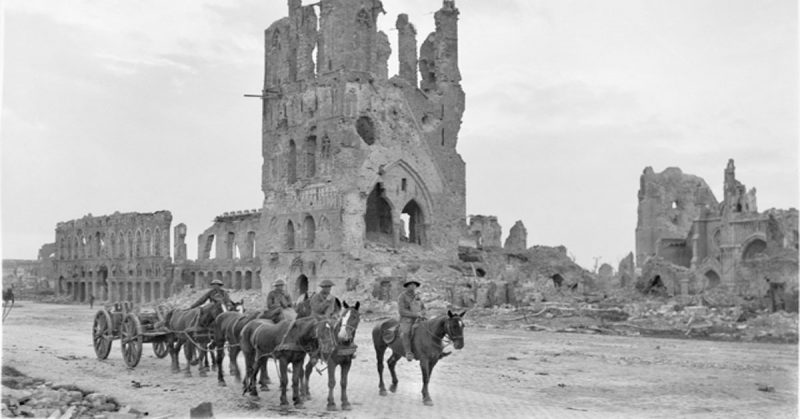It is a scene often played out in the movies. Wounded and overrun by superior enemy numbers, the only option was to feign death and wait until the cover of night to escape. The fighting at the first battle of Ypres in 1914 wasn’t short on brutality, but gallantry was in good supply as well.
When the 129th Duke of Connaught’s Own Buluchis of the British Indian Army were hurried into action in late 1914, among the ranks would be a man by the name of Khudadad Kahn from Punjab in British India. This regiment would be the first Indian regiment to directly attack the Germans in World War 1, but it would be a defensive stand that would earn Khan the nation’s highest military honor. On October 31st, 1914 the German’s threw superior numbers and the brunt of their assault at the regiment in an attempt to break through.
After a day of gallant fighting, for Khan it would end with him overrun, badly wounded, and left for dead. However, he would muster the strength to crawl through the lines under the cover of night and become the first member of the Indian Army be awarded the Victoria Cross.
A Noble Stand
Khudadad Kahn was born on October 20th, 1888 in the village of Dab which rested in the Chakwal District of the Punjab Province in British India. Khan would eventually find his way to the 129th Duke of Connaught’s Own Baluchis where he would serve as a machine gunner.
At the onset of World War 1, the Baluchis would see considerable action on the Western Front in France and Belgium. One of their more notable engagements and the action that would lead to Khan’s recognition would take place near Ypres.
The German Army had their sights set on the ports bordering the North Sea and all that stood in their way was a numerically inferior and poorly equipped Franco-British force. Elements of the Indian Army were in route, but time would be of the essence.
Arriving just in time to take part in the action and serve a vital role in halting the German advance would be Khan and the 129th of the British Indian Army.

By October of 1914, the German and Franco-British armies were concluding what would be become known as the “Race to the Sea” which was an attempt by the other to take the northern flank and reach the port cities.
It resulted in a series of battles throughout October and November as they encountered one another and eventually large numbers of forces began to coalesce around the Belgian city of Ypres. Throughout the war Ypres would be the scene of heavy fighting due to its strategic location and the ancient city would be in complete ruins by war’s end.
Fighting Until the End
However, in October of 1914 German advances threatened a breakthrough at Ypres and to bolster the line, regiments from the Indian Army were thrust into action. In particular, two companies of the regiment would bear the brunt of the German assault and on Halloween of all days, the Baluchis would find themselves heavily outnumbered near the village of Gheluvelt with only hope that they could delay the massive onslaught to prevent a total breakthrough.
Khan was responsible for one of two machine-gun teams that would remain in action throughout the day cutting down wave after wave of Germans.

Eventually, artillery took out one position killing or seriously wounding every member of the team and it was just Khan’s still in the action. Despite what appeared to be imminent death and having already been seriously wounded himself, Khan kept the gun in action until the very last moment as the members of his team began to fall around him. Eventually the Germans poured into the position as the rest of his team had been shot or bayonetted.
Wounded and alone, Khan was forced to wait out the rest of the attack as the German’s stepped over presuming him to be dead. Meanwhile, the gallant stand of the Baluchis bought just enough time for additional British and Indian forces to be mustered into the line and prevent total loss.
A Nighttime Escape
As the darkness of night blanketed the muddy position and surrounded by the dead, Khan slowly and in great pain began to crawl his way out of the position and toward friendly lines. Upon returning he was treated for his wounds where accounts of his actions were relayed.
Every member of Khan’s team would posthumously receive a military award for the action, but for Khan he would be given the Empires highest. Khan would acknowledge that he wore it for the men who didn’t return as he accepted it on December 7th, 1914.

Khan would eventually return back to his home in what is now modern day Pakistan, and his Victoria Cross is displayed at his ancestral house in the village of Dab. Khan would continue to serve in the British army after the war and with the creation of Pakistan in 1947, he would serve as a military inspiration for the newly formed army.
But to the British people, the men who fought with him in Belgium, and to those he and the Baluchis saved from being overrun he will always be a brother in arms who did his duty until the end. Khan passed away in 1971 and his buried in his homeland where continues to remain a source of national pride.
